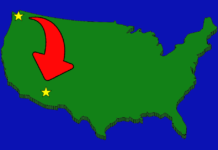
Consider this as you sit down at the Thanksgiving table. On that table there will be a mountain of tasty foods. You will have cranberries, gravy, stuffing (or dressing, depending on how your family calls it) and a pumpkin pie afterwards. Your family probably also has a special dish: sweet potato soufflé, roasted Brussels sprouts, or a bourbon-pecan pie. And there most definitely will be a turkey. At the center of the table will be a beautiful turkey.
Now consider the people sitting around your table. I bet there is a “turkey” sitting at your table, mixed in with the people you are happy to see.
The turkey at the table (different from the turkey on the table) is someone you wish was not at Thanksgiving dinner. The turkey offended with a careless comment, betrayed you by something they did, or ruined your family gatherings with their foolishness.
Every family has its turkey. In other words, every family gathering brings “baggage” with it. There is always a past hurt, a word said in anger, or a situation that causes pain.
Sometimes the turkey is a hovering, invisible presence. Grandma may not be at the table because she no longer is welcome at the house. Uncle so-in-so may not be at the table because his behavior was so awful, so turkey-ish he cannot come. The ex-husband or ex-wife who forces Thanksgiving to happen on Tuesday or Saturday (because it’s “their year” to have the kids on Thanksgiving) is a turkey that casts a shadow over the dinner. There’s always a turkey, even when they are not physically present.
Let me make a suggestion to deal with the turkey at the table: forgive.
The act of forgiveness is the hard act of saying, “I am not going to hold on to this hurt,” and “I refuse to let my anger ruin today’s dinner.” Forgiveness is not forgetting the turkey hurt you, but rather the act of stepping out of the anger, the bitterness and the grief you feel.
When you forgive, you sit across the table from the turkey and think new thoughts. Rather than thinking, “You turkey, I am mad about this, and that, and this other thing,” look across the table and think, “You turkey, you will not ruin my dinner. I’m going to focus on the fact that my children love you, on the fact that our family is together, on the truth that we have other important things in common.”
I do not want to suggest that this is easy. In my church, we pray The Lord’s Prayer every Sunday (my Catholic friends call this the “Our Father” prayer). In that prayer, we ask every single Sunday that God would “forgive us our sins, as we forgive those who sin against us.” Every single Sunday we ask for help forgiving. I think Jesus told us to pray this prayer because He understood how hard forgiveness is.



![Rizz party organizers say city ‘lying’ One of several flyers for a "TikTok rizz party" is taped to a door in the Maricopa Business Center along Honeycutt Road on April 23, 2024. [Monica D. Spencer]](https://www.inmaricopa.com/wp-content/uploads/2024/04/spencer-042324-tiktok-rizz-party-flyer-web-218x150.jpg)
![Province writer opens the athlete’s mind in new book Tom Schuman, a Province resident, poses with a copy of his new book, "My Wide World of Sports," outside his home on May 2, 2024. [Monica D. Spencer]](https://www.inmaricopa.com/wp-content/uploads/2024/05/spencer-050224-tom-schuman-sports-book-web-01-218x150.jpg)





![Merging lanes incite more 347 anger A merging lane sign sits on the side of State Route 347 northbound lanes during evening traffic on April 30, 2024. [Monica D. Spencer]](https://www.inmaricopa.com/wp-content/uploads/2024/04/spencer-043024-adot-merging-lanes-347-web-218x150.jpg)


![Maricopa restaurateur makes Food Network connection [Namkeen Dhaba]](https://www.inmaricopa.com/wp-content/uploads/2024/04/439456716_377105198650519_7536248579664805896_n-218x150.jpg)
![SR 238 closures start tomorrow SR 238 [File]](https://www.inmaricopa.com/wp-content/uploads/2022/04/az-238_e_seq_034-100x70.jpg)


